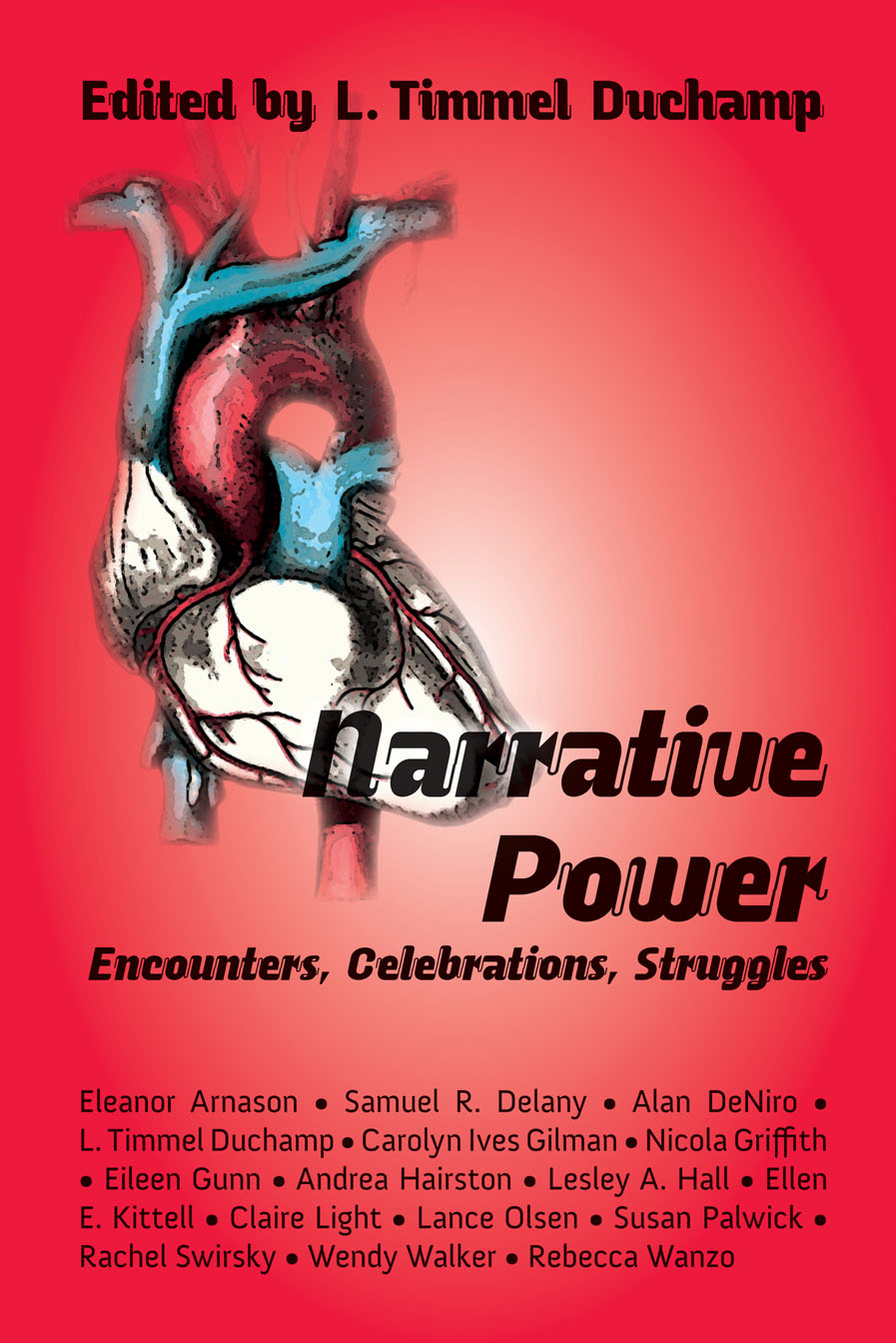Narrative Power: Encounters, Celebrations, Strugglesedited by L. Timmel Duchamp
This collection of essays on narrative inclued essays by Samuel R. Delany, Lance Olsen, Nicola Griffith, Lesley A. Hall, Alan DeNiro, Carolyn Ives Gilman, and others. It is commonly said that history is written by the victors: the narrator chooses the events that will be part of the story, and the narrative explains their meaning. In fiction, narrative conventions and clichés make writing and reading familiar stories easier, but also impede writers' efforts to tell unfamiliar stories. This volume asks: Is narrative inherently dangerous? Empowering? Or even liberating? A mix of established and new writers join several scholars in considering the politics of narrative manifested in fiction, history, and science. Reviews...In this collection of essays, edited by L. Timmel Duchamp, narrative power is examined from sixteen different perspectives. The volume's subtitle—Encounters, Celebrations, Struggles—explains why its essays linger in the mind. Its writers have skin in the game. Many of their insights have that bittersweet flavor peculiar to autobiographical accounts. Some of the essays are reprints, but most originated from a Wiscon 2009 panel session. This might explain the informal, leaning-towards-the-microphone quality of the writing. All the essays are worth a second read and an individual response....
...Dachau started out as an artist's colony. Joseph Goebbels, Reich
Minister of Propaganda and Hitler's BFF, started out as a
novelist. Narratives do strange things to people and places. There is no
final protection against malign narratives and the Pied Pipers of history
except the steady pressure of conversation. We owe a debt of gratitude to
L. Timmel Duchamp, Aqueduct Press, and the many contributors. Volumes such
this keep us alert, awake. May its tribe increase.
(Read the whole review)
ISBN: 978-1-933500-34-8 (13 digit)
|

